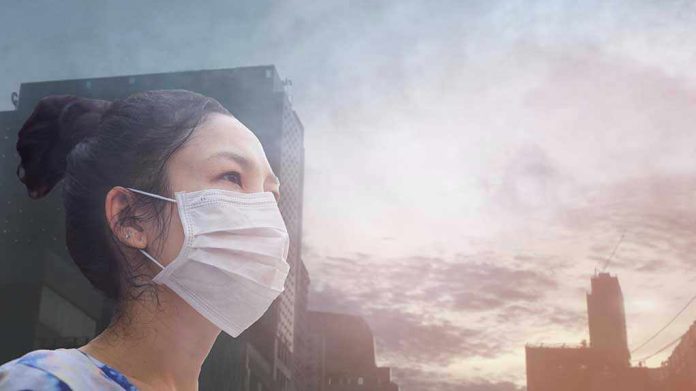
A new viral outbreak in China is reviving strict Covid-era restrictions and raising alarms about government overreach and the risk of global contagion.
Story Highlights
- China faces its largest-ever chikungunya outbreak, with over 8,000 cases reported since June 2025 in Guangdong province.
- Authorities have imposed aggressive public health measures, including quarantines and drone-led mosquito control, reminiscent of past pandemic lockdowns.
- International agencies, including the CDC, have issued travel advisories as cases are confirmed beyond China’s borders.
- The outbreak is linked to environmental changes, sparking concerns about future threats and the effectiveness of draconian containment policies.
Record Chikungunya Outbreak Triggers Covid-Era Controls in China
China is now battling its largest outbreak of the mosquito-borne chikungunya virus, with more than 8,000 confirmed cases reported in Guangdong province since June 2025. Health authorities have resorted to sweeping public health interventions, reviving strict measures that echo the Covid-19 response: quarantines, mass mosquito fogging with drones, household inspections, and even fines for non-compliance. These actions are raising red flags among those wary of government overreach and the erosion of civil liberties, especially given recent history with pandemic-era controls.
The rapid escalation of the outbreak—from the first clusters in June to thousands of cases by August—has drawn the attention of the U.S. Centers for Disease Control and Prevention (CDC) and the European Centre for Disease Prevention and Control (ECDC). Both agencies have issued travel advisories, warning Americans and Europeans about the risk of infection and urging vigilance for anyone traveling to or from the affected areas. The outbreak’s expansion to neighboring regions, including Taiwan, demonstrates the potential for broader regional—and even global—spread if containment fails.
Environmental Factors and Public Health Response
The unprecedented scale of this outbreak has been traced to environmental shifts: monsoon floods in southern China created ideal breeding conditions for disease-carrying Aedes mosquitoes. Public health officials point to climate change as a key driver, with warming temperatures and changing rainfall patterns expanding mosquito habitats and increasing the risk of outbreaks not just in China, but worldwide. Guangdong’s dense population and subtropical climate have further contributed to the crisis, overwhelming local healthcare and forcing authorities into aggressive action.
China’s centralized public health authority has enabled rapid, large-scale interventions. However, the aggressive response—including quarantines, drone surveillance, and fines—has drawn comparisons to the harshest moments of the Covid-19 pandemic. These top-down measures may restrict personal freedoms and disrupt daily life, raising concerns among international observers about the balance between disease control and individual rights. For many in the U.S. who value constitutional protections, the specter of government-mandated restrictions is a stark reminder of the dangers of unchecked state power.
Implications for U.S. Travelers and Policy Watchers
With the CDC issuing a Level 2 travel alert and the risk of imported cases rising, Americans planning to visit China or nearby regions are urged to take precautions, including vaccination and mosquito avoidance. Experts warn that while chikungunya is rarely fatal, it can cause severe joint pain and weeks of debilitating illness. The outbreak’s economic impact is already being felt in the region, with disruptions to travel, trade, and daily life—an outcome all too familiar from recent pandemic experience. U.S. policymakers and the public should remain vigilant about any calls to implement similarly heavy-handed restrictions at home in response to foreign outbreaks.
Could YOU have the virus prompting Covid-era restrictions in China? What you need to know about chikungunya virus – https://t.co/JFPip6b2TI pic.twitter.com/91LoEmqshP
— Vale50plus (@vale50plus) August 9, 2025
As the situation develops, the larger lesson is clear: environmental factors and global travel will continue to fuel the risk of emerging diseases, but responses must not trample on individual liberties or constitutional rights. The American approach—grounded in personal responsibility, common sense, and limited government—stands in sharp contrast to the sweeping state controls now seen in China. The coming weeks will test whether China’s aggressive tactics can contain the outbreak, and whether the world will follow suit or defend freedom against the creeping tide of government expansion.
Sources:
Sanger Institute Blog (2025-08-07)




